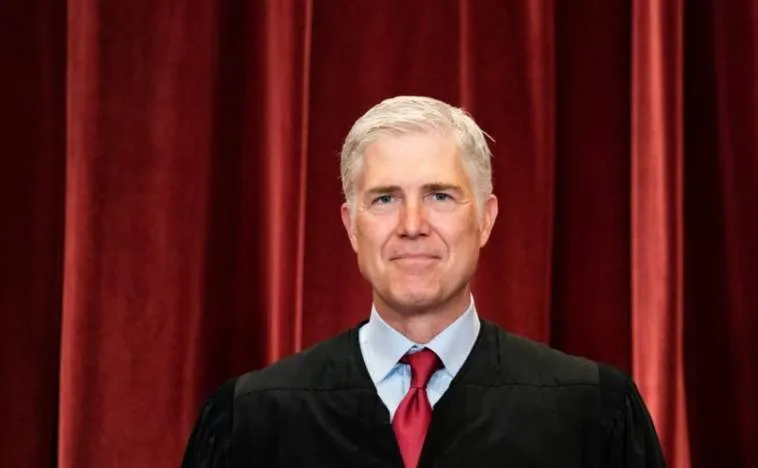(LifeSite) The U.S. Supreme Court ruled 6-3 Friday that the First Amendment to the U.S. Constitution protects a Christian web designer’s right not to produce websites for same-sex “weddings,” in a major victory for freedom of speech.
303 Creative LLC v. Elenis concerns Lorie Smith, owner of the marketing, web, and graphic design company 303 Creative LLC, who challenged Colorado’s Anti-Discrimination Act (CADA) in anticipation of legal challenges to her desired web design work celebrating “biblical marriage,” and her intent to publish a disclaimer that she “firmly believe[s]” that she is being called by God to do work that “celebrate[s] His design for marriage as a life-long union between one man and one woman.”
On Friday, Justice Neil Gorsuch delivered the majority ruling in the case, ruling that the “First Amendment prohibits Colorado from forcing a website designer to create expressive designs speaking messages with which the designer disagrees.” Left-wing Justice Sonia Sotomayor wrote a dissenting opinion, joined by fellow liberal Justices Elena Kagan and Ketanji Brown Jackson. All the conservative justices joined Gorsuch’s opinion, without writing their own concurrences.
“A hundred years ago, Ms. Smith might have furnished her services using pen and paper,” Gorsuch wrote. “Those services are no less protected speech today because they are conveyed with a ‘voice that resonates farther than it could from any soapbox.’ All manner of speech – from ‘pictures, films, paintings, drawings, and engravings,’ to ‘oral utterance and the printed word’ – qualify for the First Amendment’s protections; no less can hold true when it comes to speech like Ms. Smith’s conveyed over the Internet.”
“In Hurley, Dale, and Barnette, the Court found that governments impermissibly compelled speech in violation of the First Amendment when they tried to force speakers to accept a message with which they disagreed,” he continued. “Here, Colorado seeks to put Ms. Smith to a similar choice: If she wishes to speak, she must either speak as the State demands or face sanctions for expressing her own beliefs, sanctions that may include compulsory participation in ‘remedial … training,’ filing periodic compliance reports as officials deem necessary, and paying monetary fines.”
“Consider what a contrary approach would mean,” Gorsuch argued. “Under Colorado’s logic, the government may compel anyone who speaks for pay on a given topic to accept all commissions on that same topic – no matter the underlying message – if the topic somehow implicates a customer’s statutorily protected trait … Taken seriously, that principle would allow the government to force all manner of artists, speechwriters, and others whose services involve speech to speak what they do not believe on pain of penalty. The government could require ‘an unwilling Muslim movie director to make a film with a Zionist message,’ or ‘an atheist muralist to accept a commission celebrating Evangelical zeal,’ so long as they would make films or murals for other members of the public with different messages … Countless other creative professionals, too, could be forced to choose between remaining silent, producing speech that violates their beliefs, or speaking their minds and incurring sanctions for doing so.”
“Today, the Court, for the first time in its history, grants a business open to the public a constitutional right to refuse to serve members of a protected class,” wrote Sotomayor in her dissent. “Specifically, the Court holds that the First Amendment exempts a website design company from a state law that prohibits the company from denying wedding websites to same-sex couples if the company chooses to sell those websites to the public … the law in question targets conduct, not speech, for regulation, and the act of discrimination has never constituted protected expression under the First Amendment.”






